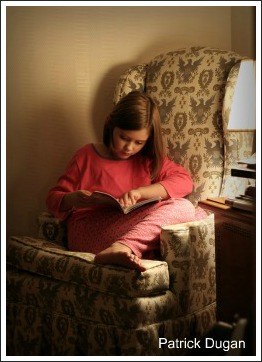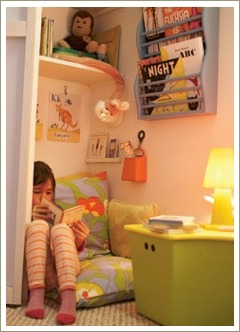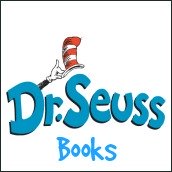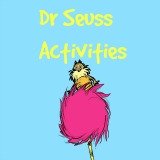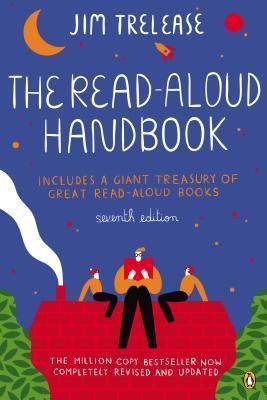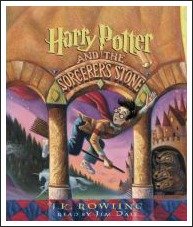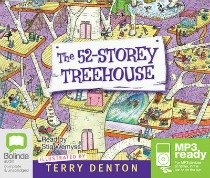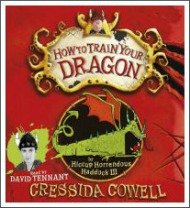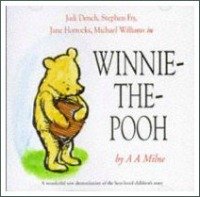You are here: home / how to raise a reader
How to Raise A Reader
Are you keen to raise a reader but wonder how to go about it?
You might be surprised to learn that it's actually not that difficult. In fact, getting your children interested in books and reading is easy and it’s something that every parent can do, whatever your own level of education or how well you did at school.
Raising a child who reads well and who loves books and reading does take commitment, a bit of thought and a certain amount of planning ahead but that’s all it takes. Raising readers doesn’t take a parent with a university degree or oodles of money to spend on expensive programs and classes. And it doesn’t take a parent who’s a teacher or a child who seems to have been ‘born smart’.
When my twin sons started school twelve years ago, I was surprised to find that some parents thought this way. They thought that some children were simply 'good readers' and some weren't, as if they'd been born that way. But, as a mum and primary (elementary) school teacher, I really believe that all children can become capable readers.
More importantly, they can become children who love to read if they're introduced to books and reading early.
And it's not just me saying this. There's actually a great deal of information out there about the characteristics of good readers and about the kinds of things they do and are exposed to as babies and as pre-schoolers.
Psychologists and educators have loads of evidence about the things parents do when they raise children who love to read and I've written about all of them on Best Books for Kids so that you too can raise a reader.
My three children and my five nephews have all loved books and reading from their earliest days and went on to become very capable readers. And, with your help, your child can too. (Note: book covers and titles are affiliate links.)
10 Tips To Help You Raise A Reader
1. Start Early
Deciding when your child starts school that you’d like him to become a good reader and to enjoy reading is way too late. Make the decision to raise a reader when your baby is born (or even before) and commit to spending a bit of time making it happen and you may be amazed at how easily and naturally your child learns to read when he’s older. To a great extent, reading is a habit so the key is to help your child get the reading habit.
2. Read Aloud Every Day
You probably know already that this is an important thing to do. What you may not know is how important it is to do it often and from an early age. The evidence is now very clear that to raise a reader we need to read to our babies from the time they’re born and continue to read aloud to them often as they grow up. Aim to read aloud every single day. Try for at least three books a day, for at least ten minutes a day.
3. Make Reading Part of Your Family's Life
Modelling good reading habits is important. Our kids need to see us reading and discussing what we’ve read so that they grow up with the message that reading’s an important and enjoyable part of life. It’s especially important for boys to see their fathers reading to counteract the idea that still exists in some places that reading is ‘something girls do.’
4. Seek Out Good Books
Be on the look out for books that might interest your child. This is relatively easy when your child is young but becomes more important as he gets older and can read independently. Taking your child to the library regularly when he or she is a baby is a great start. Get your child his own library card and let him choose his own books as soon as he’s able to. Older kids can find it hard to choose a book when they’re confronted by all the shelves at the library or in a bookshop. It can be daunting because there's just so much choice and often kids will end up just telling you they ‘couldn’t find a book to read.’ I’ve found that girls will often talk among themselves about books they’ve enjoyed but boys don’t seem to do this as much. Talking to other parents about the books their children have enjoyed can be helpful or go to the booklists by age at the top of this page.
5. Create a Reading-Friendly Home
Making sure your child has a quiet, comfortable place to read is an easy way to encourage him or her to read but it’s something that’s surprisingly easy to overlook. This can be as simple as making sure your child has a reading light by the bed and setting a bedtime that includes half an hour to read in bed before ‘lights out’. If you have the space in a bedroom or playroom, creating a special reading nook can be fun. Part of creating a reading-friendly environment is making sure the rest of the family knows not to interrupt anyone who's reading. Teach your children this when they're young and they'll get the message that reading is important and not to be interrupted!
6. Make Time for Reading
Many kids don't read for pleasure simply because they're constantly watching TV or playing electronic games. These can be great fun for kids but they're also great time-wasters and I think it's important to keep control of the amount of time children spend on them. I feel quite strongly that, as parents, we have a responsibility to help our children manage their time so that they have time for reading. It's really about creating a reading habit rather than a screen habit and it's a good idea to start when your child is young.
7. Use Technology
If your child has access to an iPad or Kindle or something similar, you may want to explore the world of electronic book readers in your quest to raise a reader. There's a lot to be said for 'real' books with paper pages but our kids live and breathe technology and they're often more open to reading if they can do it on cool devices like e-book readers, ipads, iphones or ipods. I mention this because of something that happened at our place recently while I was updating this site. My daughter, who's twelve, saved up and bought herself an ipad a while back and one night she came and told me the next book in a series she's been reading was available as an e-book. It was cheaper than the $14.95 I would have paid for the paper version and we didn't have to wait until the next day and make a trip to the shops so I agreed that she could buy it. Ten minutes later, the deed was done and she went off to bed to read her book. Happy kid, happy mum! I know that electronic book readers are still relatively expensive and not everyone has one but if your family does it may be worth a try with an older child or teenager.
8. Give Audio Books a Go
Listening to audio books doesn't replace reading aloud to your child or, if your child's older, independent reading but it's a fun alternative. There are some great kids' audio books available these days and they can be a great way to get a reluctant reader excited about books and reading, without the pressure. You can get them on CD or download them onto an ipod via itunes. Audio books are also great for long trips and for when kids are sick or in hospital.
9. Have Books on Display
Young children especially will play with whatever's handy. They don't have long memories and, when they're very small, they simply don't have the language skills to ask for the books that have been put away in a cupboard or on a high shelf.
This makes it really important that you have books clearly on display in the parts of your home where your little ones spend lots of time. This way they'll pick them up and read them often, ask you to read them and carry them around with them. In other words, their books will become part of their lives, which is what you want to happen.
For this to work, the books need to be low down at your child's eye-level and they need to be displayed with the covers facing outwards. There are some clever ways to build book shelves that allow you to do this. Check out the ideas on this page.
10. Give Books as Gifts
When my children were younger, they always received a book each on their birthdays from their dad and I. Usually they received another gift too but the book was a given. As they got older, they chose the book themselves and the trip to our local book shop became a special birthday treat. Now they're older, my three choose their own books, although they each received an Amazon Kindle last Christmas.
Giving books as gifts is a lovely tradition and makes a great change from all the plastic bits and pieces children often receive as gifts. Books live on after the plastic has been lost or broken and the memory of a favourite book is one that is treasured by many adults.
